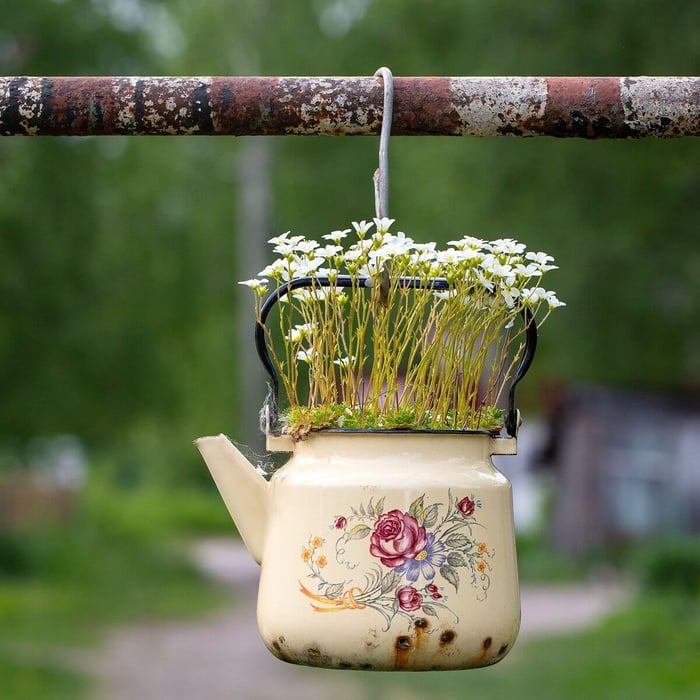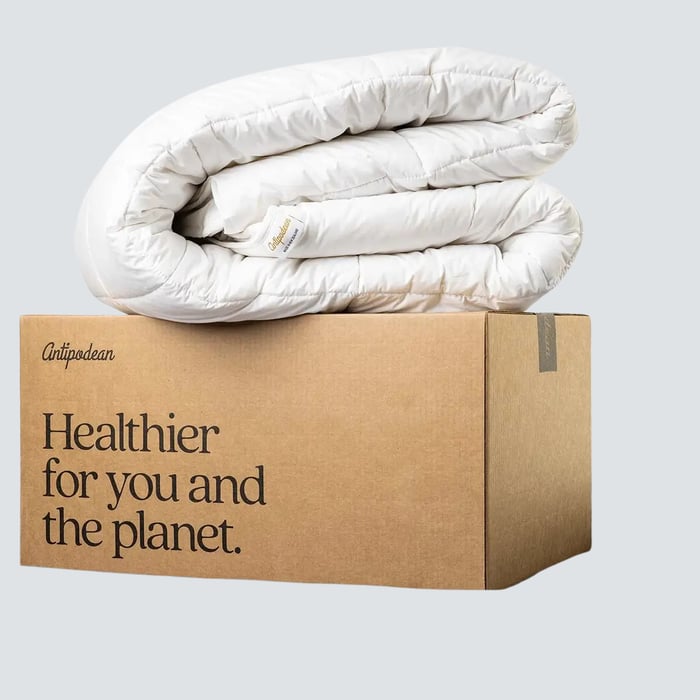Table of Contents
- Why Organic Bedding Matters for a Healthier, Regenerative Home
- The Shift Toward a Healthier Kind of Comfort
- What Makes Organic Bedding Different
- The Regenerative Difference
- The Wellness Connection: Better Sleep, Naturally
- From Soil to Sleep: A Circular Story
- How to Begin Your Transition
- The Emotional Side of Sustainable Living
- From Bedroom to Biosphere: Every Choice Counts
- The Future of Restorative Design
- A Regenerative Home Begins with Rest
- FAQs on Wool Duvet Inserts, Comforters & Sustainable Bedding
Why Organic Bedding Matters for a Healthier, Regenerative Home
At Antipodean Home, we believe organic bedding should do more than look beautiful — it should help you live well. Born from New Zealand’s regenerative landscapes, our philosophy is simple: comfort should restore more than it consumes. The materials closest to your skin shape not only your sleep but your health, your mood, and the world you wake up to.
Our organic bedding made from regenerative wool and organic cotton supports deeper, cleaner rest — without synthetic dyes, toxins, or compromise. It’s a small shift with a big impact: a healthier home, a lighter footprint, and sleep that feels as natural as it should.
In this guide, we’ll explore why choosing organic, regenerative bedding is more than a lifestyle choice — it’s a meaningful step toward a cleaner planet and a truly restorative home.
Key Takeaways
Organic bedding supports both personal wellness and planetary health by eliminating toxins and embracing sustainable materials.
Natural fibers like organic cotton and regenerative wool regulate temperature, improve breathability, and promote deeper, chemical-free sleep.
Choosing sustainable, regenerative bedding supports soil health, animal welfare, and circular design practices.
Small bedroom choices—comforters, sheets, and duvets—can help create a non-toxic, restorative home environment that aligns with your values.
The Shift Toward a Healthier Kind of Comfort
Most of us think of comfort as a feeling—softness, warmth, familiarity. But true comfort begins with peace of mind. Traditional bedding is often treated with synthetic dyes, flame retardants, and chemical finishes that linger long after they leave the factory floor. Those residues don’t just stay in your sheets—they stay in your air and against your skin.
Organic bedding turns that equation around. Crafted from fibers grown and processed without pesticides or toxins, it brings you closer to nature’s original design for rest. Every thread tells a story of soil regeneration, clean air, and mindful craftsmanship—a reminder that luxury can coexist with integrity.
Organic Wool Comforter

$342.00
$380.00
Our organic wool comforter is designed to keep you dry, balanced, and deeply comfortable all night. Unlike down or synthetic comforters that trap heat, our spun wool design wicks away moisture and prevents overheating, so you stay cool & dry.… Read more
What Makes Organic Bedding Different
At its core, organic bedding is defined by what it leaves out: no harsh bleaches, formaldehyde, or synthetic softeners. Instead, it’s made from natural materials like organic cotton, regenerative wool, and linen, chosen for breathability and purity.
Where synthetic fabrics trap heat and moisture, natural fibers adapt. Organic comforters regulate temperature, keeping you cool through warm nights and insulated during winter. Organic sheets allow air to circulate freely, reducing night sweats and improving overall sleep quality.
Even the smallest weave difference can change how your body restores itself overnight—proof that materials matter.
 Every mindful choice, from the materials in your home to repurposed decor, contributes to a healthier, regenerative living space.
Every mindful choice, from the materials in your home to repurposed decor, contributes to a healthier, regenerative living space.The Regenerative Difference
Sustainability asks us to do less harm. Regeneration asks us to do more good.
When bedding is made from regenerative wool or organic cotton grown through restorative farming, it goes beyond neutral—it gives back. Regenerative agriculture rebuilds soil, captures carbon, and supports biodiversity. It’s a closed loop where the land heals itself, the animals thrive, and the products that come from it carry that vitality forward into your home.
In essence, regenerative bedding isn’t just environmentally friendly—it’s actively restorative. It’s the kind of progress that begins beneath your feet but ends beneath your sheets.
The Wellness Connection: Better Sleep, Naturally
Your body recognizes purity. When you sleep wrapped in natural, non-toxic bedding, your skin breathes easier, your body temperature balances, and your nervous system relaxes.
Chemical-free sleep has measurable effects:
Fewer allergens and irritants mean calmer breathing and clearer skin.
Better temperature regulation helps maintain deep sleep cycles.
The soft, breathable texture of organic fabrics reduces friction and static, lowering micro-disturbances throughout the night.
What you rest on becomes a reflection of how you live—and how well you recover.
From Soil to Sleep: A Circular Story
The path from farm to bedroom tells you everything about a product’s integrity. Sustainable bedding honors every stage of that journey: ethical farming, mindful manufacturing, biodegradable materials, and low-impact packaging.
Unlike synthetics that end up in landfills, organic and regenerative textiles decompose naturally—returning to the earth as they began. It’s a simple truth that modern living often forgets: what nurtures the land also nurtures us.
How to Begin Your Transition
Creating a healthier home doesn’t mean replacing everything at once. Start small.
Upgrade one layer: Replace your comforter or sheets first—the items with the most skin contact.
Check certifications: Look for GOTS, OEKO-TEX, or ZQRX (for regenerative wool) to ensure authenticity.
Focus on longevity: Organic fibers last longer when cared for properly, reducing waste over time.
Think regenerative, not just sustainable: Choose brands that actively restore ecosystems, not just minimize impact.
For guidance on specific materials, warmth levels, and certifications, explore our in-depth guide to choosing the best organic comforter — a practical follow-up to this philosophy-driven piece.
The Emotional Side of Sustainable Living
Choosing organic bedding is also an emotional choice. It’s about slowing down in a world that’s constantly accelerating—valuing rest as much as action. When your home reflects mindfulness, it shifts how you feel in it. The textures are calmer, the air cleaner, the space lighter. This emotional ease translates into better sleep and a deeper sense of belonging—because your environment finally feels aligned with your values.
From Bedroom to Biosphere: Every Choice Counts
One comforter may seem small in the grand scheme of climate action, but every product made from regenerative materials carries measurable impact. Organic and sustainable bedding reduces chemical runoff, protects waterways, and supports farming systems that sequester carbon instead of emitting it. Even small household changes—like choosing an organic comforter or switching to organic cotton sheets—send a signal to industries that regeneration matters. Conscious consumption becomes collective momentum.
Regenerative Organic Cotton Sheet Set – Soft, Breathable & Sustainable

$189.00
Softer Sheets. Cleaner Sleep. Our organic cotton sheet set are simply better for the earth, and for your sleep. Grown on low-impact regenerative farms that actively heal the soil, our cotton is then woven and finished responsibly. This process eliminates… Read more
The Future of Restorative Design
The rise of regenerative bedding represents a broader shift in design thinking. Home goods are no longer judged solely by aesthetics or luxury—they’re being measured by longevity, ethics, and contribution to the ecosystem. As more brands adopt circular manufacturing and traceable supply chains, our homes are evolving into extensions of environmental stewardship. The next era of comfort will be defined not by excess, but by harmony—products that give back as much as they offer.
A Regenerative Home Begins with Rest
The modern world rewards movement—but regeneration begins with stillness.
When your home aligns with the cycles of nature, even rest becomes an act of renewal. Organic bedding does more than create a comfortable bed; it reconnects you to the living systems that sustain life itself. Every night spent in breathable, natural fibers is a small step toward a cleaner planet—and a healthier you.
Because better sleep isn’t found in excess—it’s found in essence.
Discover Our Organic Bedding & Sheet Sets
FAQs on Wool Duvet Inserts, Comforters & Sustainable Bedding
What makes an organic comforter healthier than a regular one?
Organic comforters are made without synthetic chemicals, dyes, or flame retardants — so you breathe cleaner air while you sleep. They’re crafted from natural fibers like regenerative wool or organic cotton, which are hypoallergenic, moisture-regulating, and safe for sensitive skin.
Are organic comforters good for hot sleepers?
Yes. Organic comforters filled with natural wool or breathable cotton help regulate body temperature by wicking away moisture and allowing airflow. Unlike synthetic fills that trap heat, wool fibers keep you cool in summer and comfortably warm in winter.
How long does an organic comforter last?
With proper care, an organic comforter can last 10 years or more. Natural fibers are durable, self-cleaning, and retain loft far longer than synthetics, which tend to flatten or clump over time.
What certifications should I look for when buying an organic comforter?
Look for recognized labels like GOTS (Global Organic Textile Standard) or OEKO-TEX Standard 100. These ensure your comforter meets strict criteria for organic content, chemical safety, and ethical production.
How do I care for an organic wool or cotton comforter?
Air your comforter outdoors every few months to refresh the fibers, and spot-clean when needed with mild soap and cool water. Avoid harsh detergents or dry cleaning chemicals — natural fibers are self-regulating and don’t need frequent washing.
Is an organic comforter worth the price?
Yes. An organic comforter costs more upfront but lasts longer and promotes healthier sleep. Made from natural fibers like organic cotton or regenerative wool, it’s free from synthetic chemicals and microplastics, reducing skin irritation and improving temperature balance — benefits that cheap synthetics can’t match.
What is the difference between organic and regenerative wool?
Organic wool is farmed without pesticides or chemical treatments. Regenerative wool goes a step further — it’s raised on farms that actively restore soil, enhance biodiversity, and capture carbon. The result is a fiber that supports both your well-being and the planet’s long-term health.




